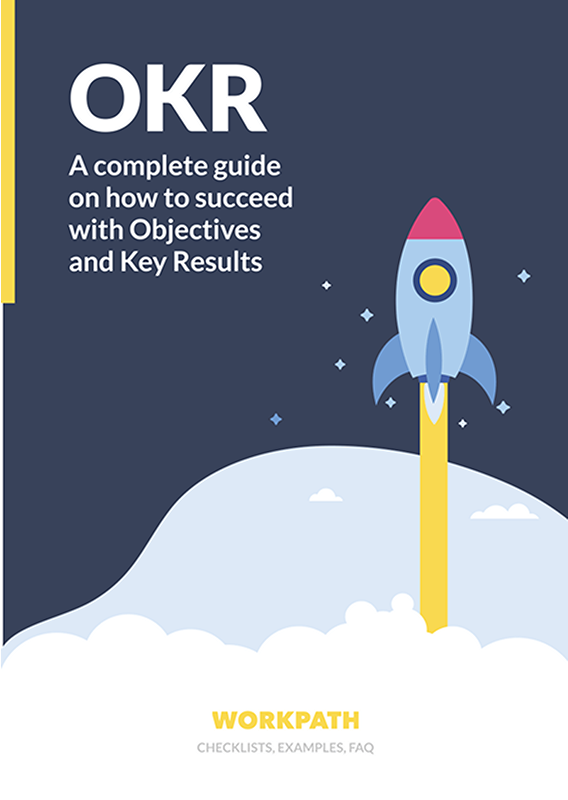The business philosophy
More and more companies are framing their own business philosophy, which they ideally want to live by within their organization and present to the public. Such a philosophy is becoming more relevant, especially for scalable companies, as it provides a clear direction and can serve as an orientation for actions. In this article, you will learn what components make up a company philosophy and what makes a good one.
In short
In today's business world, a robust corporate philosophy that includes a clear mission, vision, and values is essential for scalability and public image.
- Deloitte's research shows that purpose-driven companies outperform in innovation and employee retention.
- Successful examples such as Facebook/Meta, IKEA, and Tesla demonstrate the importance of aligning corporate actions with philosophy, fostering trust and integrity.
- For scaling companies, integrating objectives and key results (OKRs) with their evolving philosophy ensures the strategic alignment and adaptability critical to long-term success.
What is a business philosophy?
A business philosophy is basically meant to show a specific direction or guiding principle for the company and positively influence the company’s public image. Through the company philosophy, the self-image and fundamental principles are written down in the form of a target state. A company’s philosophy defines the mission statement, a clear vision and company values.
Mission Statement
A company’s mission statement describes an organization’s core objective, usually from a social point of view or with emphasis on corporate social responsibility (CSR). The mission corresponds, so to speak, to the way in which goals should be achieved.
Vision
“What would we like to achieve together in the future?” This is the question the company vision addresses. The goal is to formulate a meaningful and motivating vision to positively influence an employee’s own actions.
Values
Company values provide concrete action orientation. They are primarily directed at the company’s own employees and are often communicated to applicants for employer branding purposes. First and foremost, values are aimed at work practices, interpersonal collaboration and responsibility. When implemented correctly, they act as a guide for how employees should act. Values are modifiable components of the enterprise philosophy. They can be reviewed from time to time and adjusted as necessary, for example, if a company scales and finds certain values are no longer in line with their enterprise philosophy.
Get to know the Workpaths values!
Why do company’s need a philosophy?
An enterprise philosophy can fulfill various purposes and functions, both internally and externally.
- Integration function: At the employee level, the corporate philosophy should strengthen the employee's sense of belonging, increase motivation and commitment (corporate identity), and create a sense of purpose.
A Deloitte study found that purpose-driven companies have 30% higher levels of innovation and 40% higher levels of employee retention than their competitors.
- Orientation function: The vision of a business philosophy can serve as orientation for values and standards. For example, in the case of recruiting, it can facilitate the selection of suitable employees by determining if the applicant fits into the business philosophy. Depending on how relevant the enterprise philosophy is, some companies will already determine if the applicant matches their values during the interview process.
- Coordination function: On an external level, the respective business philosophy can positively represent the company’s public image. It offers stakeholders, (potential) customers and opinion leaders an answer to the question: “What does this organization stand for?”
- Decision-making function: A corporate philosophy can also offer a foundation for further development and change processes, providing a framework for short-term and long-term changes.

How do you formulate a good business philosophy?
A good business philosophy…
- Inspires “outside” and motivates “inside.”: A sound business philosophy should serve as a source of inspiration externally and a motivator internally. It should resonate not only with your customers and stakeholders, but also with your employees, creating a shared sense of purpose.
- Elicits an emotional response: Your philosophy should connect on an emotional level, evoking feelings that align with your brand's identity. For example, a company dedicated to environmental sustainability might evoke a sense of stewardship and responsibility for the planet.
- Provides a clear direction or orientation: It should provide a clear and actionable direction to guide decisions and strategies. This includes outlining how the company will achieve its vision and the principles that will guide its approach.
- Paints a picture of the future: A forward-looking perspective that paints an aspirational picture of the future is essential. This vision should be ambitious yet achievable, encouraging progress and innovation.
- Is timeless: Good business philosophies transcend current trends and short-term goals. They are enduring principles that guide the company through different market conditions and societal changes.
A McKinsey study found that companies with a long-term view outperform other companies by 81% economically.
- Improves a current state or significantly eliminates societal pain points: Ideally, a philosophy should make a positive contribution to society by addressing specific pain points or improving the current state of affairs in a meaningful way.
Examples:
Health-focused food brand: "Nourishing communities with healthy, accessible food for a healthier tomorrow."
- Why it's good: It clearly targets a societal pain point - access to healthy food.
- It paints an aspirational future of community health and wellness, which resonates emotionally with health-conscious consumers.
Education Tech Startup: "Revolutionizing learning by making quality education accessible to anyone, anywhere."
- Why it's good: This philosophy effectively answers the "for whom?" and "what?" questions.
- It addresses the issue of educational accessibility and leverages technology as a force for social good, making it timeless and inspiring.

A bad business philosophy…
- Has vague growth aspirations: Avoid general statements about growth that don't address how or why this growth is beneficial or sustainable. For example, "We aim to double our revenue in two years" lacks specificity about the impact or method.
- Overemphasizes market share: Focusing solely on market share or other financial metrics can appear short-sighted and self-serving. For example, "Our goal is to achieve 20% market share in three years" fails to address customer needs or societal contributions.
- Focuses only on internal objectives: Philosophies that are purely internal or based on competition can be unappealing to external audiences. They should extend beyond the walls of the company and resonate with a broader audience.
Examples:
Manufacturing Company: " Become the region's largest manufacturer by 2025."
- Why it's bad: This statement focuses solely on size and does not address how this growth will benefit customers or society.
- It lacks emotional appeal and fails to provide a clear direction beyond quantitative growth.
Fashion retailer: "To outperform our competitors in every market we enter."
- Why it's bad: This philosophy is purely competitive and does not articulate benefits to customers or society.
- It lacks a clear direction for improvement or innovation and lacks aspirational or emotional appeal.
Navigating the Challenges of Creating a Robust Corporate Philosophy
Real-life examples of authentic and superficial business philosophies
The effectiveness of a corporate philosophy depends on its authenticity and alignment with the organization's core values. If a philosophy is crafted primarily to create a positive public image, but lacks resonance with the true ethos of the organization, it will fail to foster true engagement and trust. An authentic business philosophy is one that is not just outwardly proclaimed, but deeply ingrained and actively embodied by the company's employees and leaders. Such a philosophy enhances the company's reputation by reflecting its true identity and values.
According to the Edelmann Trust Barometer 2020, "trust in the company that owns the brand or the brand that makes the product" is the second most important factor for consumers when buying a new brand. Trust is second only to price.
Examples of Authentic Corporate Philosophies
- Facebook/Meta: "Give people the power to build community and bring the world closer together” (source). Facebook, now known as Meta, is an example of a philosophy that drives its business. Its platforms, from Facebook to Instagram to WhatsApp, have continually evolved to offer more features that connect people, such as community groups, live video, and messaging. By focusing on user connectivity and community building, Meta strives to embody its philosophy in its product development and community initiatives.
- IKEA: "To create a better everyday life for many people" (source). IKEA's philosophy is reflected in its business model, which focuses on providing affordable, functional and well-designed furniture that is accessible to a wide audience. IKEA's commitment to sustainability, as seen in its initiatives for environmentally friendly products and solutions, reinforces its philosophy of improving everyday life while taking care of the planet.
- Tesla, Inc.: "To accelerate the world's transition to sustainable energy” (source). Tesla's commitment to sustainable energy extends beyond electric cars to solar energy products and energy storage solutions. This philosophy is not just a statement but a driving force behind their innovations, as seen in their continuous advancements in battery technology, solar panels, and eco-friendly production practices. Tesla's approach demonstrates how a company's philosophy can be a catalyst for industry-wide change, pushing forward not just a brand but an entire sector towards sustainability.

Examples of Superficial Corporate Philosophies
In contrast, some companies adopt philosophies that seem disconnected from their actions or business practices, leading to a perception of inauthenticity.
- For example, a technology company that claims to value customer privacy but is frequently involved in data breaches and privacy scandals would be seen as having a superficial philosophy.
- Similarly, a fast-food chain that emphasizes healthy living but sells mostly high-calorie foods may have difficulty convincing stakeholders of its commitment to health.
The Importance of Alignment in Corporate Philosophy
The key to a successful corporate philosophy is alignment - ensuring that the company's actions, policies and culture reflect its stated values and vision. This alignment fosters a sense of trust and integrity, and attracts customers, employees, and partners who share similar values. Companies like Patagonia, known for its environmental activism, and Google, with its commitment to innovation and a forward-thinking work environment, are prime examples of organizations whose philosophies are deeply integrated into their business practices.
How are OKR and philosophy related?
The introduction of the OKR method is an important and useful step for living up to the business philosophy sustainably and achieving long-term goals. It enables organizations to effectively achieve their vision and mission by linking the corporate philosophy to OKRs, driving alignment, execution and scalability.
Align OKRs with corporate goals
To ensure a harmonious relationship between a company's philosophy and its OKRs, it's important to carefully align the OKRs with the company's overarching goals. This alignment transforms abstract elements of the business philosophy into tangible, measurable objectives and key results. In this way, OKRs serve as practical tools that not only reflect the company's ethos, but also guide its strategic direction.
OKRs bring strategic artifacts to life
The versatility of OKRs lies in their ability to make various strategic artifacts measurable and actionable. Whether it's a vision statement, a set of core values, or long-term strategic goals, OKRs translate these elements into specific, quantifiable objectives. This conversion from conceptual to concrete not only "brings them to life," but also ensures that they are realistically achievable, providing a clear roadmap for progress.
Adapting OKRs in Scaling Organizations
For organizations focused on scalability, understanding how business philosophies and OKRs evolve together is critical. As an organization grows, its philosophy often needs to adapt to new challenges, market dynamics, and internal changes. OKRs are particularly adept at facilitating this evolution. They provide the flexibility needed to scale goals and key outcomes in line with the organization's expanding scope and shifting priorities. This adaptability makes OKRs an ideal framework for companies at different stages of growth, ensuring that their evolving business philosophy is consistently reflected in their strategic planning and execution.
Learn how to scale OKRs for 5,000+ employees in our guide!
Business philosophy FAQ
What is a business philosophy?
The business philosophy provides a specific direction or guiding principle for the company and should positively influence its public image. Through the business philosophy, the self-image and fundamental principles are written down in the form of a target state.
What is the purpose of a business philosophy?
A business philosophy should motivate employees and represent them in public.
How do you write a business philosophy?
A good business philosophy fulfills the following aspects:
- Elicits an emotional response
- Provides a clear direction or orientation
- Paints a picture of the future
- Is timeless
- Improves a current state or significantly eliminates societal pain points
What are some famous examples of business philosophy?
- Apple: "Think Different" - This philosophy emphasizes innovation and challenging the status quo.
- Google: "Do the right thing; don't be evil" - Focuses on ethical behavior and making positive contributions to society.
- Starbucks: "To inspire and nurture the human spirit - one person, one cup, and one neighborhood at a time" - This philosophy focuses on creating a positive experience for customers and communities.
What types of business philosophies are there?
- Customer-centric: Prioritizes customer satisfaction and experience.
- Innovation Driven: Focuses on continuous innovation and breaking new ground.
- Sustainability-focused: Emphasizes environmental stewardship and ethical practices.
- Employee-Focused: Focuses on employee well-being and creating a supportive workplace culture.
How does a business philosophy influence company culture?
A company philosophy sets the tone for the company's values and priorities, influencing decision making, employee behavior and the overall work environment. It guides how employees interact with each other and with customers, and how they approach their work.
Can a company philosophy evolve over time?
Yes, a company philosophy can and often does evolve as a company grows, enters new markets, or faces new challenges. It can be refined to reflect changes in the company's goals, market conditions, or societal expectations.
How does a business philosophy differ from a business strategy?
A business philosophy is a set of guiding principles and values that define a company's identity and approach to doing business. In contrast, a business strategy is a specific plan of action designed to achieve specific goals. Strategy is often informed by philosophy.
What is the role of leadership in embodying a corporate philosophy?
Leadership is critical to modeling and reinforcing a business philosophy. Leaders must embody the philosophy in their actions, decisions, and communications, setting an example for the rest of the organization to follow.
How do companies measure the effectiveness of their corporate philosophy?
Effectiveness can be measured through employee engagement surveys, customer satisfaction scores, brand reputation studies, and by assessing alignment with strategic goals and results.
What challenges do companies face in implementing their business philosophy?
Common challenges include ensuring alignment across the organization, effectively communicating the philosophy, and integrating it into daily business practices and decision making.
How important is employee involvement in the development of a corporate philosophy?
Employee involvement is very important to ensure that the philosophy is realistic, relatable, and reflects the collective values and beliefs of those who are part of the organization.
How does a business philosophy impact customer relationships and brand loyalty?
A well-articulated and authentic company philosophy can significantly improve customer relationships and brand loyalty. It helps build trust, align with customer values, and differentiate the brand in the marketplace.






